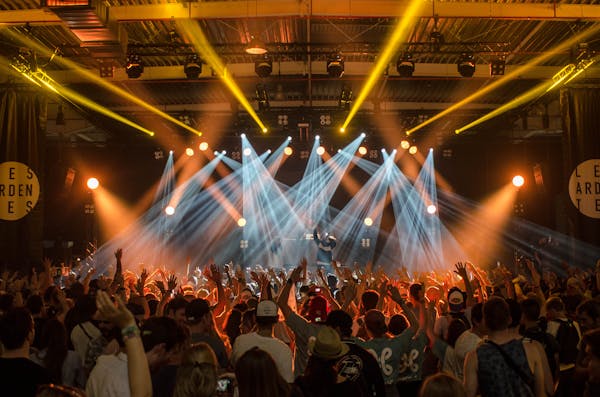Music concerts are one of the most engaging and entertaining events you can host. But they can also be one of the most unpredictable, due to unforeseen challenges such as technical malfunctions or weather issues.
To ensure the success of your concert, start by setting goals and objectives. This will guide your choices about talent, venue and other event activities. Find out more at The Eagles concert tickets.
Audience
A music concert is a musical performance where a group of listeners are present and interact with the musicians. This social interaction can include dancing or simply moving to the rhythm of the music.
The audience can also interact with the performers through a range of other activities, such as singing. This interaction is often encouraged by the performer and can create a sense of community amongst the audience members.
The nature of the concert will vary by the genre of music and the individual performers. For example, concerts by a jazz combo and a bluegrass band may have the same order of program, mood, and volume but differ in the music and dress. A particular musician or band can attract concert attendees with similar styles, for example hippies of the 1960s who toted long hair (often in dread lock form), sandals and inexpensive clothing made from natural fibres. These style differences can contribute to the elicitation of a sense of belonging among concert attenders.
Venue
A music concert is a performance in which a musician or many musicians play music together to a group of listeners. It may also include a visual element. It can be held in a variety of settings, from private houses and small nightclubs to dedicated concert halls and amphitheatres to large multipurpose buildings such as arenas or stadiums. It can also be held outdoors. Informal names for the event include show and gig.

In the 17th century, concerts developed from informal gatherings of amateur musicians to bring classical music to a wider audience. Throughout the 19th century, they evolved with the development of the symphony and with a cosmopolitan outlook in concert patronage.
Musicians usually perform in concerts on a stage, which is raised above the audience. Sometimes, the stage is covered with a cloth or other material to reduce sound reflection. The music is often amplified, and the performers may use stage lighting and other special effects.
Performing Artists
Musicians often work up a sweat and burn a lot of energy during their performances. To refuel, they typically consume healthy meals or snacks that contain high-protein foods. This helps them rebuild their strength and energy for future shows. They also may review their performance, identifying areas where they can improve and making changes to enhance their future performances.
Touring makes up a large portion of a musician’s income. As a result, it’s crucial to set up financial transactions and other business operations carefully. This involves careful budgeting, accurate record-keeping, and responsible financial management.
Whether they’re playing their greatest hits or a brand-new track, a show is an opportunity for musicians to connect with fans. This can help cultivate a loyal and dedicated following, which can boost a musician’s career. Meeting their fans can also lead to future collaborations and other opportunities. They may also label their equipment and keep it organized to make unpacking and setting up for future concerts easier.
Equipment
The equipment needed for a music concert depends on the format and venue, from a small, cozy gig in a trendy lounge to a big-name act at a stadium. However, there are certain essentials that every concert must include.
The most important piece of AV equipment used at concerts is the audio system. State-of-the-art audio systems provide crystal-clear sound quality that resonates with audiences.
Other equipment includes mixers and amplifiers, which are necessary for routing and amplifying the signal sent from musicians’ instruments or microphones. The house engineer uses these tools to create a mix that will be heard by the audience. They also use graphic equalisers, which allow them to manipulate frequency ranges in the mix.
Monitor speakers enable the performers to hear themselves on stage, and vocal effects such as reverb and echo help singers deliver a great performance. Moreover, backup systems ensure that technical malfunctions with audio-visual equipment do not interfere with the concert’s flow.